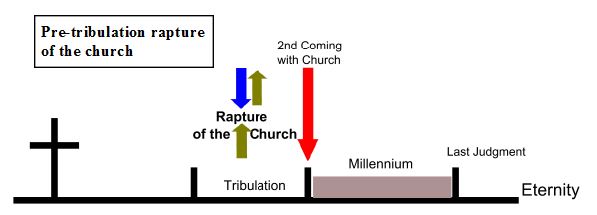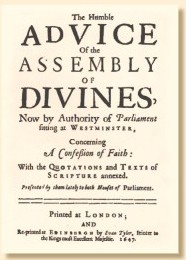 Related Articles
Related Articles
|
|
|
 Websites
Websites
|
|
|
|
|
Covenant Theology and Dispensationalism
Two contradictory and competing 'systematic theologies' have been, and remain very influential in shaping Christian belief and action.
 Note: The 'response' facility relating to this article is available to (logged on) site members only. Note: The 'response' facility relating to this article is available to (logged on) site members only.
Preface
The following article is a modified extract from an earlier article entitled 'A Covenant-keeping God'. The piece, which contains an overview of the major Biblical covenants, is itself part of a 'Drilling Down' series of articles (a 'work in progress').
-----------------------
Foreword:
Theological constructs;
frameworks of interpretation
(aka Systematic Theology)
REGARDING interpretational systems and frameworks or – to use the fancy term – hermeneutics, it is important to note the distinction between terms which are ‘theological’ and those which are ‘biblical’. Theological terms need to be treated with great caution.
Whilst these might be convenient in the discussion of key biblical themes and concepts (e.g. the term ‘Trinity’ as used in reference to the triune Godhead) these are essentially – in the grand sweep of history – neologisms.
They are essentially religious rather than biblical terms or, to use another word, ‘inventions’. They are often lacking clear definition and, across the Christian spectrum, experience differing levels of (dis)agreement and common understanding.
An example is the word ‘sacrament’. It is not found in the Bible and theologians have differed regarding the precise nature of a ‘sacrament’ and also what is (and isn’t ) covered by the term. (See New World Encyclopedia on the subject.) And the different opinions are not confined to the clichéd Roman Catholic/Protestant divisions. The Reformers Luther and Zwingli were famously in disagreement over Communion.
It is also important to differentiate between inductive learning and deductive reasoning. The former derives a view directly from (out of and formed by) the Bible text (exegesis): the latter is arrived at by a process of logic. For instance (and only for the sake of illustration) if it is held that God predestines some to salvation, then logic should dictate that God must, by extension, predestine some to a lost eternity. The use of logic can produce doctrines that are arrived at by eisegesis (reading into a Bible text from a particular and pre-suppositional theological framework).
Clever murder mysteries use 'deduction' to lead the reader or viewer on a false trail and to suspect the wrong person of the crime. (But of course Hercule Poirot's incisive and 'out-of-the-box' thinking shames the logic of we armchair sleuths every time.)
This is not to detract from the benefits of Systematic Theology which (in plainer language) is merely a themed approach to Bible study, but rather to highlight that theological suppositions should never be placed on a par with or, infinitely worse still, sit above the Word of God.
------------
Introduction
Two major theological systems -
(which contradict each other whilst also failing the Berean test: Acts 17:10-11).
 Caveat: Whilst focusing on particular interpretations, this is an 'equal opportunities' document in that it offers scope for a variety of opinions right across the theological spectrum. Caveat: Whilst focusing on particular interpretations, this is an 'equal opportunities' document in that it offers scope for a variety of opinions right across the theological spectrum.
In the Christian community across the world there are a variety of theological positions. However two of these have gained widespread support and – whilst disagreeing with one another – have both been highly influential in the formulation of belief. And it is important to stress again that these are theological constructs. The earliest of the two has been termed ‘Covenant Theology’ (mainly formulated and codified in the 17th century; see Footnote): the other being ‘Dispensationalism’ (with its origins in the 19th century).
The former is a central plank within Presbyterian churches around the world and across the (Presbyterian) denominational spectrum. The latter originated in the UK (pioneered by those within what became the Plymouth Brethren), but crossed the Atlantic to become hugely influential in the late 19th century. Dispensationalism informed the belief of the pentecostal churches at the start of the 20th century and has, since then, expanded both denominationally and geographically.
Covenant Theology

Covenant Theology (CT) developed two principal terms to describe its dual covenant interpretational framework viz. a Covenant of Works and a Covenant of Grace. (Some argue that there is only one covenant – the Covenant of Grace. Others include a Covenant of Redemption between the Father and the Son.) These theological terms have been employed to develop a whole range of doctrines and, because of the influence that they have had, we will (d.v.) come back to these later in more detail.
However, for the moment, and with reference to the most common 'dual-covenant' view – developed first by Dudley Fenner, an English Puritan, in 1585; and then Scottish theologian Robert Rollock (1555 - 1598) – it is sufficient to say that the (theological) Covenant of Works is used to denote the period prior to the Fall in the Garden of Eden. In simple terms the Covenant of Works would say: “If Adam and Eve had obeyed the instructions given to them then they would have been OK. “ However Adam and Eve didn’t, so God had to embark on Plan B – the Covenant of Grace.”
This term – again simply speaking, but remembering that it is a theological expression, not a biblical, one – covers the continuous period from the Fall until the final consummation and Kingdom come.
However this span of time is (it is argued) should be split into two ‘administrations’ (again a non-biblical term); basically delineated by the Old Testament (OT) and the New Testament (NT) periods. In these two ‘administrations’ (it is said) God applied the same principles but in two different situations and in two different ways to the one people of God. These were Israelites in the OT and believers (Gentile and Jewish) in NT times.
Whilst this is a convenient hermeneutic, it is not biblical. The nation of Israel was in effect a theocracy within which some were in communion with God (cf Heb. 11) while others very obviously, were not. In contrast the church (in the true sense of the bride of Christ) comprises solely of people in blood-bought communion with God.
So 'OT Israel = OT expression of church' is both overly-simplistic and grossly misleading . As a corollary, 'Church = Israel' is also untrue. (More on this below.) But as Covenant Theology has been widely accepted as ‘biblical’ it has led directly to (for instance) infant baptism. Accordingly paedobaptism is claimed to be the NT equivalent of circumcision – even though circumcision was never the symbol of salvation and union with God; and was only ever applied to males. [Again, more on this at later date (d.v.) when looking at 'Who are Abraham's seed?']
One of the other principal, and even more serious, mistakes deriving from Covenant Theology has led to what is commonly called ‘Replacement Theology’. This ‘theology’ – also termed Supercessionism – teaches that the Jews have now been ‘replaced’ by the mainly-Gentile church and (therefore, by deduction and logic) the promises to the Jews have now either all been fulfilled or spiritualised; or will find any contemporary or future fulfillment in the church. (So for instance many older Bibles have chapter headings for Isaiah 59 as “God’s curses on the Jews” and Isaiah 60 as “God’s blessings on the Church”.)
The ‘replacement’ view is most emphatically rejected by Paul in his letter to the (Jewish and Gentile) church at Rome. In fact this is his core message (Rom 11:1-2; 11-12) and the underlying reason for writing this – his longest – letter.
Dispensationalism

In contrast to Covenant Theology the other system of interpretation that has attracted widespread support is that of Dispensationalism.
There is a view that Dispensationalism (as distinct from, but embracing pre-millennialism) has its genesis in a Scottish believer (Margaret Macdonald; 1815-1840) and a Church of Scotland minister (Rev. Edward Irving; 1792-1834). What is undisputed is the fact the John Nelson Darby (founder of the Plymouth Brethren as a distinct grouping with its roots in the wider Brethren movement) is the latter-day father of this theological system. Darby took his pre-tribulation rapture teachings (the removal of believers from the earth prior to the return of Christ and before the ‘great tribulation’ of Matt. 24) to America where they were enthusiastically embraced by a lawyer called Cyrus I. Scofield (1843-1921).
Scofield in turn produced the Scofield Reference Bible (first published 1909) which is annotated throughout in support of Darby’s interpretations – especially with reference to eschatology, the end-time prophecies and events regarding Christ’s return. The Scofield Bible has been hugely influential right through to the present day – in America and right around the world. The teachings are now being propagated through the Moody Bible Institute in Chicago, Dallas Theological Seminary, and more than 200 other lesser-known Bible institutes..
Dispensationalism divides history into sections, covering the periods of Innocence, Conscience, Civil Government, the Patriarchs, the Law, Grace (the church age), the Millennium and the final consummation leading to the everlasting kingdom. However, and perhaps because this theological system lacks biblical warrant, there is a range of opinions (disagreement) on how many dispensations there are (varying from three to eight) and where, in history and in Scripture, the dividing lines lie.
But irrespective of the number of dispensations, the agreed assumption is that God has dealt differently with his world and its people in each of these different dispensations. Accordingly then, a different hermeneutic needs to be applied to the different portions of Scripture which cover these different periods of time.
What is also generally agreed is that the church age is a parenthesis – a defined interlude – in God’s overall plan of salvation i.e. in the OT God is dealing through the Jews while the NT is the time of the Gentile church until Jesus’s rapture of the saints (with a pre/post/mid-Tribulation rapture range of views) . This will usher in a further period of God again dealing with and through the Jews.
Dispensational teaching has been greatly popularised and adopted through hugely-influential and best-selling books like Hal Lindsey’s ‘The Late Great Planet Earth’ (1970) and the ‘Left Behind’ series of novels by Tim LaHaye. The Left Behind books – the first in the series appeared in 1995 – have sold over 50 million copies, and have been turned into a cinema production. The books are freely available from and often prominently displayed in Christian bookshops.
As stated earlier, the core element of these novels is the ‘pre-tribulation rapture’ which, as already stated, teaches that all Christians will be suddenly and without any warning removed from the earth prior to the return of Christ. (See Footnotes.) However, and apart from the wider Christian community, even within the Brethren camp there was disagreement. George Mueller (of Bristol Orphanage fame) broke with Darby over this issue. The great Baptist preacher C.H. Spurgeon also declared the teaching to be unscriptural. Nevertheless the doctrine has persisted.
In summation...
Both Covenant Theology and Dispensationalism have been and continue to be highly influential in formulating Christian belief, but both are disputed.
Covenant Theology dismisses swathes of end-time prophecy as irrelevant or allegorical, and sees no place in God’s final purposes for the Jews other than (perhaps) a final ingathering as outlined in Romans. In terms of latter-day expectations prior to the return of Jesus, the former implicitly teaches a universally positive response to the Gospel (reading more into Matt. 24:14 than the verse allows; cf Matt 7:14).
Meanwhile, though recognising the prophesied 'time of great trouble' (Dan 12:1; Matt 24; 2 Tim. 3:1-12), Dispensationalism (in pre-tribulation rapture form), teaches that believers will be spirited away, leaving the Jews to face the music of Satan’s final onslaught. (See Footnotes.)
So while the Gentile believers look down from a safe vantage point in heaven (as God's 'heavenly people'), the Jews will be God's latter-day 'earthly people' who will suffer greatly but endure through the Great Tribulation. Within the Dispensationalist view, Matthew 24 (et al) and, for some, Revelation chapters 4 - 19 are seen as only of academic interest – given the belief that the Gentile saints will be in heaven during that period.
Regarding God’s end-time purposes for the Jews, Dispensational Theology cannot get the church and Israel together, whereas Covenant Theology cannot get the church and Israel apart. The former sees the Jews and the church as totally different entities separated by ethnicity and end-time progression, whereas the latter see Israel and the Jews as essentially an earlier expression of the church, differentiated only by two separate and distinct ‘administrations’ of time (OT/NT) in God’s grace. In fact Israel was/is a physical nation comprising the saved and the lost (Rom 9:7), whereas followers of Christ are a spiritual nation made up exclusively of the redeemed (Gal 3:7,8; 1 Pet 2:9).
At the very least it can be confidently stated that because these two systems disagree markedly with one another, they cannot both be completely right. (And it could be argued that in critical issues they are both wrong.) Yet both of these systems have created expectations and assumptions which could leave believers scripturally askew; vulnerable through false hopes; and ill-prepared to understand the times and the purposes of God in our day as the cosmic upheavals preceding Kingdom Come drawn ever nearer.
At the risk of vain repetition, the theological systems of Covenant Theology and Dispensationalism lack Biblical support in major areas of doctrine, theology and eschatology. Moreover they profoundly disagree with each other on very significant points – especially concerning the times preceding the coming again of Christ; the place of, and God’s purposes for the Jewish people; and the establishment of His everlasting kingdom.
Footnotes:
1. Pre-Tribulation Rapture of the church as taught by most Dispensationalists. The view held is that Christ will have two comings: the first will be invisible 'for the saints' and the second 'with the saints'.

-------------------
 2. The Westminister Confession of Faith (1644) codifies much of what is described as 'Calvinism' and is subscribed to as a 'Subordinate Standard' by Presbyterian denominations worldwide. 2. The Westminister Confession of Faith (1644) codifies much of what is described as 'Calvinism' and is subscribed to as a 'Subordinate Standard' by Presbyterian denominations worldwide.
The document is predicated on so-called 'Covenant Theology' and contains material which is, in the broad sweep of the formulation Biblical, extra-biblical, and unbiblical representing Truth mixed with error.
It is also deficient in failing to cover some some major biblical themes: making bare mention of the person and role of the Holy Spirit, and with no mention of the Great Commission.
3. The Millennium
 Broadly speaking Reformed (Covenant) theology teaches the Millennium as being a definite period prior to the coming again of Christ at the end of the age. However, the early church believed in a literal Millennial reign of Christ on earth. Broadly speaking Reformed (Covenant) theology teaches the Millennium as being a definite period prior to the coming again of Christ at the end of the age. However, the early church believed in a literal Millennial reign of Christ on earth.
While many today share this latter view, not all who do are Dispensationlists (i.e. all Dispensationlists are pre-millennial but not all Pre-Millennialists adhere to Dispensationalism). See article The (Coming) Millennium by a Scottish lay preacher and city mission superintendent. |
The Editor, 30/07/2013
|
(page
1
2
3
4
5
6
7
8
9
10
11
12
13)
| |
|
Editor |
17/08/2013 15:00 |
I think that the subject of the pre-trib rapture has been given a fair hearing. Is there anyone out there who is prepared to comment on Covenant Theology? (The original article was posted with the hope that BOTH of these systemantic theologies would undergo a rigorous appraisal.)
|
| |
|
Colin Ford (Guest) |
17/08/2013 15:26 |
Editor,
I certainly agree with you, up to a point.
But we must NOT forget (unless you believe otherwise?) that the pre-trib rapture, IS, for want of a better expression, the crowning achievement of Dispensational theology, it is inextricably linked to it; it has created a false hope, deluding Christians that are alive in the "end-times" that they will not be persecuted or be part of the Antichrist system of government, which is rapidly approaching?
I can almost hear his footsteps.....
|
| |
|
Colin Ford (Guest) |
17/08/2013 15:34 |
I would happily be prepared to discuss other aspects of Covenant Theology, for example paedo baptism, I only mention this because our friend Jack Thomson, on another thread, strongly inferred that such a practice is not Biblical, well, until very recently I would have agreed with him, so we mustn't "chuck the baby out with the bathwater" as the saying goes?!
Infant baptism saves nobody?
What about adult baptism?
|
| |
|
Dale (Guest) |
17/08/2013 18:45 |
Covenant theology as taught by the Presbyterian wing of Reformed Christianity has, I feel, done significant damage to the Church. I will not be popular for saying this but I think it needs to be said anywzy. There could be many people within the visible church who THINK they are Christians because they have been brought up as believers by their believing parents and the fact that they were baptised as infants. However they may have never been born again by the Spirit. Moreover there are some who may have become disillusioned with the Dispensational approach and think that the only alternative is Covenant Theology - they go all the way and embrace infant baptism. While Dispensationalism does, probably correctly, stress the diversity of God's dealings with people in different eras, Covenant Theology stresses only one 'covenant of grace'. Covenant Theologians assert that historical covenants are merely seen as just different 'administrations' of the same one covenant of grace. The 'one covenant/various administrations' teaching is central to the argument for infant baptism. They say that since infants were included in the Abrahamic administration of the one covenant, why should we think that infants are excluded from the new administration of the same covenant of grace? So people who grow up in this church think that they have always been Christians and later seem to resist the Holy Spirit drawing them to repentance and faith. Covenant Theologians point to the OT 'believers and their seed' principle. However, in the OT it was never the case that believers only and their seed received the covenantal sign of circumcision. Rather it was ALL MEN in Israel (no women!) - whether believers or not!! Saving belief was never viewed as a condition for an Israelite man to have his male seed circumcised. This renders invalid the use paedobaptists make of the 'believers and their seed' principle. Baptised infants are received into the church. This creates a tension because the Scripture teaches that we are all born in sin and children of wrath. Yet Covenantal Theologians also teach that infants of believers are 'federally' holy and hence should be regarded as Christians!
Rather than a single covenant of grace (term not found in Scripture), there is a plurality of covenants culminating in the finality of the New Covenant in Christ (Jer 31 and Heb 8).
That is my contribution in response to the Editor's request for someone to comment on Covenant Theology.
|
| |
|
Jack Thomson (Guest) |
17/08/2013 21:32 |
Hi Colin,
In your latest post above you stated that until very recently you would have agreed that infant baptism is not scriptural - does this mean that you now believe infant baptism is scriptural?
|
| |
|
Colin Ford (Guest) |
17/08/2013 23:22 |
Certainly there is NO direct command in the NT to baptise infants, of that there is NO doubt whatsoever.
But if we study Acts 10.48 KJV, Acts 16.15 KJV, Acts 16.33 KJV and 1 Corinthians 1.16 KJV we will see that the Bible certainly DOESN'T prohibit such a practice?
I have witnessed many adult baptisms, and sad to say know of some that have renounced the Faith.
Within the so called "Free Grace" movement, another product of errant Dispensational theology, we have Baptist ministers such as Charles Stanley who proudly proclaim that "even if you renounce your Faith, you will still be saved". (as long as you first confessed Jesus as Lord, so much for perseverance of the saints?). But this "Lordship Salvation" issue is something that the Free Grace folk just cannot grasp?
I had my daughter "dedicated" instead of baptised, in an apostate Baptist union Baptist Church, apart from a few drops of water, whatever is the difference, please tell me??
If I were running a house church, would a few drops of water cause any problems among those that had Biblical wisdom? I think not.
This is a non issue. Period.
I remember attending a service at a Baptist Church in the Highlands a few years back, I was getting on fine with the minister, and I mentioned that I was being blessed by the works of J.C.Ryle, and he retorted; "but he baptised babies!"
What a crass statement?
|
| |
|
John Ferguson (Guest) |
18/08/2013 08:20 |
Colin you say baptising of infants is a product of Dispensationalism .You also say Darby invented Dispensationalism.How do you reconcile the fact that Darby taught and practised household baptism including infants .
|
| |
|
Editor |
18/08/2013 09:44 |
Infant 'Baptism' (and we can discuss that subject on a different thread if desired) is a produrct of Covenant Theology.
The line of thinking is thus - The Church has replaced Israel; so the church is now the inheritors of God's Covenants (provided they speak of blessings and not curses); the promise of Abraham regarding his children therefore (it is argued) is extend to Gentile Christian parents and their children. (The reasoning fails completely to take cognisance of the different types of 'seed' with respect to Abraham's offspring). And of course the "Baptism is the NT equivalent of circumcision" line of argument is based on this premise.
Other outworkings of Covenant Theology include:
* Theonomy (the contemporary enforcement of 'God's laws')
* Church-over-State (Rutherford's "Two Kingdoms")
* Supercessionism (aka Replacement Theology) whereby - as mentioned above - the Church has replaced Israel
* Failure to recognise and understand very important prophetic passages (in terms of past, present and future)
* End-time triumphalism and dominion theology (church rules the world before Jesus comes back)
* Legalism (ignoring the fact that the Levitical laws and the Mosaic Covenant was made exclusively with Israel; not the rest of the world)
But like all of these matters the debates usually start at the current 'on top' issue, rather than getting down to the fundamental problem(s) which result in these issues emerging as by-products.
This is why - prompted by the (then) issue of Sunday ferry sailings - I started (in 2009: Yikes!) on the 'Drilling Down' series of articles.
(The next one on the list is 'Theonomy'. I am - as time permits - doing the study and reading at present.) The article to which this thread relates is an extract. See - http://www.christianstogether.net/Articles/158924/Christians_Together_in/Christian_Life/Drilling_down_on.aspx
So, to reiterate, the question of Infant 'Baptism' (whilst initially a product of the Gentile church from early days) is - in 'Reformed' churches - supported by, and an outworking of Covenant Theology (the subject of this article and the issue which needs to be primarily addressed.)
|
| |
|
Colin Ford (Guest) |
18/08/2013 10:45 |
I agree nearly completely with the Editor's last post, and some of what Dale said previously, although I must stress that there are many that hold to Covenant Theology, one being J.C.Ryle, who was NOT a "replacement theologian", anything but! Although I certainly don't believe he went around calling himself a CT.
I am not proud of being a CT, I just believe that as a system of theology it is about as close to what the Bible teaches, that is all; whereas Dispensationalism is NOT at all Biblical. That is not to to say that everything taught by Dispensational theologians is wrong, of course not, some of the works of the early Dispensational writers are to be commended. In fact Charles Spurgeon (who was utterly opposed to Dispensationalism) wrote of Sir Robert Anderson's "Human Destiny", that it was "one of the best books I have read on the subject".
Anderson, perhaps was one of the leading early Dispensational/pre trib authors. I believe that I have all his books on my bookshelf!
Yes John, if you do your research, you will find that Darby is the "Father" of Dispensationalism, it did not exist before he came on the scene in 1830. Although there have been many botched attempts by latter day pre trib writers to twist some of the teachings of early church writers to make it seem that they held to an "any moment" rapture. John Nelson Darby was an Anglican Cleric before he "rebelled" against the institution, so clearly he couldn't have had a problem with infant baptism?
With respect, you misunderstood what I said. What I tried to communicate is that Dispensational Theology has infected conservative Baptist Churches, and they separate Law from Grace-you know the mantra? "We are not under Law, we are under grace".
As Editor says, "Infant Baptism is an outworking of Covenant Theology".
|
| |
|
Colin Ford (Guest) |
18/08/2013 11:02 |
Editor,
You must have just added to/edited your last post?
I shall re-read later.
I must correct your last paragraph slightly. You would seem to infer that all "Reformed" churches hold to infant baptism? Many Baptist Churches ARE Reformed?
|
(page
1
2
3
4
5
6
7
8
9
10
11
12
13)
|
|
|